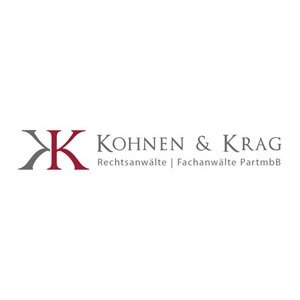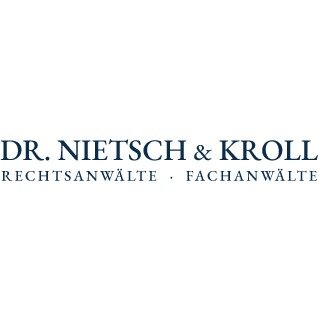Best Trusts Lawyers in Hamburg
Share your needs with us, get contacted by law firms.
Free. Takes 2 min.
List of the best lawyers in Hamburg, Germany
About Trusts Law in Hamburg, Germany
In Hamburg, Germany, a trust is a legal arrangement where a person or entity (the settlor) transfers assets to a trustee who then manages those assets for the benefit of specified beneficiaries. Trusts are commonly used in estate planning, asset protection, and charitable purposes.
Why You May Need a Lawyer
Seeking legal advice in the field of Trusts in Hamburg may be necessary in various situations, including:
- Creating a trust: A lawyer can assist you in drafting a trust deed that meets your specific goals and ensures compliance with applicable laws.
- Managing a trust: If you are a trustee, a lawyer can guide you on your duties, responsibilities, and legal obligations.
- Resolving disputes: In case of conflicts or disputes related to a trust, a lawyer can help you navigate legal proceedings and seek a fair resolution.
- Understanding tax implications: Trusts often have tax implications, and a lawyer can provide advice on how to minimize tax liability and ensure compliance with tax laws.
Local Laws Overview
When dealing with trusts in Hamburg, Germany, it is important to consider the following key aspects of local laws:
- Trusts are primarily governed by the German Civil Code (Bürgerliches Gesetzbuch).
- Hamburg has its own specific regulations and procedures related to trusts, which may differ from other German states.
- Trusts in Germany are subject to strict legal requirements, including proper documentation, fiduciary duties, and adherence to specific provisions of the law.
- German tax laws also apply to trusts, and it is essential to understand the tax implications and reporting obligations.
Frequently Asked Questions
1. Can I create a trust to protect my assets from creditors?
Yes, trusts can be used as an effective asset protection strategy in Hamburg, Germany. However, it is crucial to consult with a lawyer to ensure that the trust structure and provisions align with legal requirements and do not involve fraudulent activities.
2. How do I choose a trustee for my trust?
When selecting a trustee for your trust in Hamburg, Germany, it is advisable to choose an individual or institution that is reliable, trustworthy, and competent in managing trust affairs. It is common to appoint professional trustees or lawyers as trustees to ensure proper administration.
3. What taxes are applicable to trusts in Hamburg, Germany?
Trusts in Hamburg are subject to various taxes, including income tax, wealth tax, and inheritance tax. The tax rates and exemptions depend on the specific circumstances and the relationship between the settlor, beneficiaries, and the trust.
4. Can I change the terms of a trust after it has been created?
In Hamburg, Germany, it may be possible to modify the terms of a trust, but it generally requires the consent of all interested parties, including the settlor, beneficiaries, and the trustee. It is recommended to consult with a lawyer to ensure any changes comply with legal requirements.
5. How can I terminate a trust in Hamburg, Germany?
Trust termination in Hamburg typically involves a complex legal process. Generally, trusts can be terminated if the purpose of the trust has been fulfilled, it becomes impossible to achieve the purpose, or all beneficiaries agree to terminate the trust. Consulting with a lawyer is essential to navigate the legal process and ensure compliance.
Additional Resources
If you need further information or legal assistance regarding trusts in Hamburg, Germany, you may find the following resources helpful:
- Hamburg Chamber of Notaries (Hamburger Notarkammer)
- Hamburg Bar Association (Hanseatische Rechtsanwaltskammer)
- German Federal Ministry of Justice and Consumer Protection (Bundesministerium der Justiz und für Verbraucherschutz)
Next Steps
If you require legal assistance in the field of trusts in Hamburg, Germany, the following steps are recommended:
- Research and collect any relevant documents or information related to your trust.
- Make a list of specific questions or concerns you have regarding your trust.
- Contact a reputable lawyer who specializes in trusts and schedule a consultation.
- During the consultation, discuss your situation, ask your questions, and listen to the advice provided.
- Based on the consultation, decide on the best course of action, which may involve engaging the lawyer's services.
Lawzana helps you find the best lawyers and law firms in Hamburg through a curated and pre-screened list of qualified legal professionals. Our platform offers rankings and detailed profiles of attorneys and law firms, allowing you to compare based on practice areas, including Trusts, experience, and client feedback.
Each profile includes a description of the firm's areas of practice, client reviews, team members and partners, year of establishment, spoken languages, office locations, contact information, social media presence, and any published articles or resources. Most firms on our platform speak English and are experienced in both local and international legal matters.
Get a quote from top-rated law firms in Hamburg, Germany — quickly, securely, and without unnecessary hassle.
Disclaimer:
The information provided on this page is for general informational purposes only and does not constitute legal advice. While we strive to ensure the accuracy and relevance of the content, legal information may change over time, and interpretations of the law can vary. You should always consult with a qualified legal professional for advice specific to your situation.
We disclaim all liability for actions taken or not taken based on the content of this page. If you believe any information is incorrect or outdated, please contact us, and we will review and update it where appropriate.











